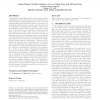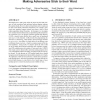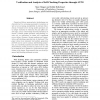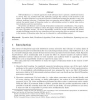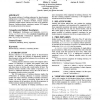56 search results - page 4 / 12 » Fault Tolerant External Memory Algorithms |
142
click to vote
ICS
2011
Tsinghua U.
14 years 4 months ago
2011
Tsinghua U.
The probability that a failure will occur before the end of the computation increases as the number of processors used in a high performance computing application increases. For l...
131
click to vote
SOSP
2007
ACM
15 years 10 months ago
2007
ACM
Researchers have made great strides in improving the fault tolerance of both centralized and replicated systems against arbitrary (Byzantine) faults. However, there are hard limit...
118
Voted
IOLTS
2008
IEEE
15 years 7 months ago
2008
IEEE
Present and future semiconductor technologies are characterized by increasing parameters variations as well as an increasing susceptibility to external disturbances. Transient err...
CORR
2010
Springer
15 years 1 months ago
2010
Springer
Self-stabilization is a versatile approach to fault-tolerance since it permits a distributed system to recover from any transient fault that arbitrarily corrupts the contents of a...
92
Voted
SPAA
2003
ACM
15 years 6 months ago
2003
ACM
The general problem of verifying coherence for shared-memory multiprocessor executions is NP-Complete. Verifying memory consistency models is therefore NP-Hard, because memory con...
